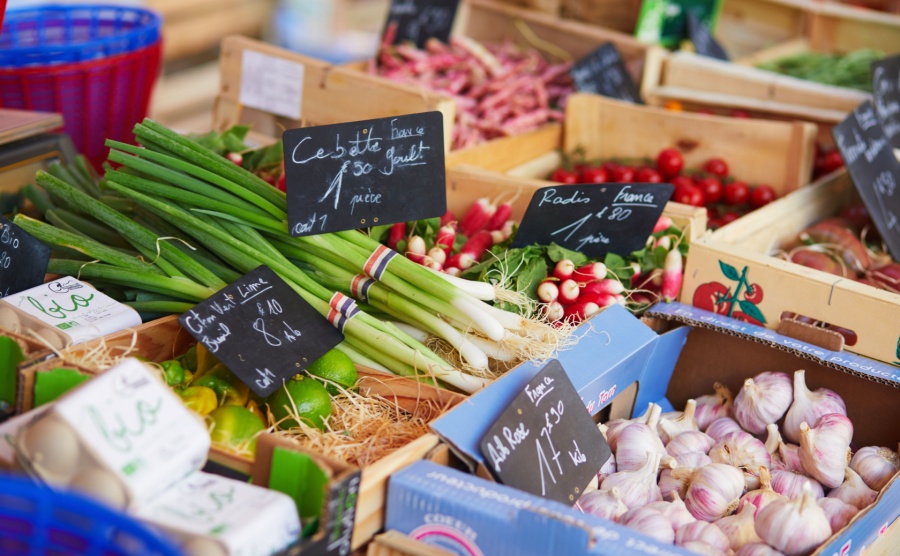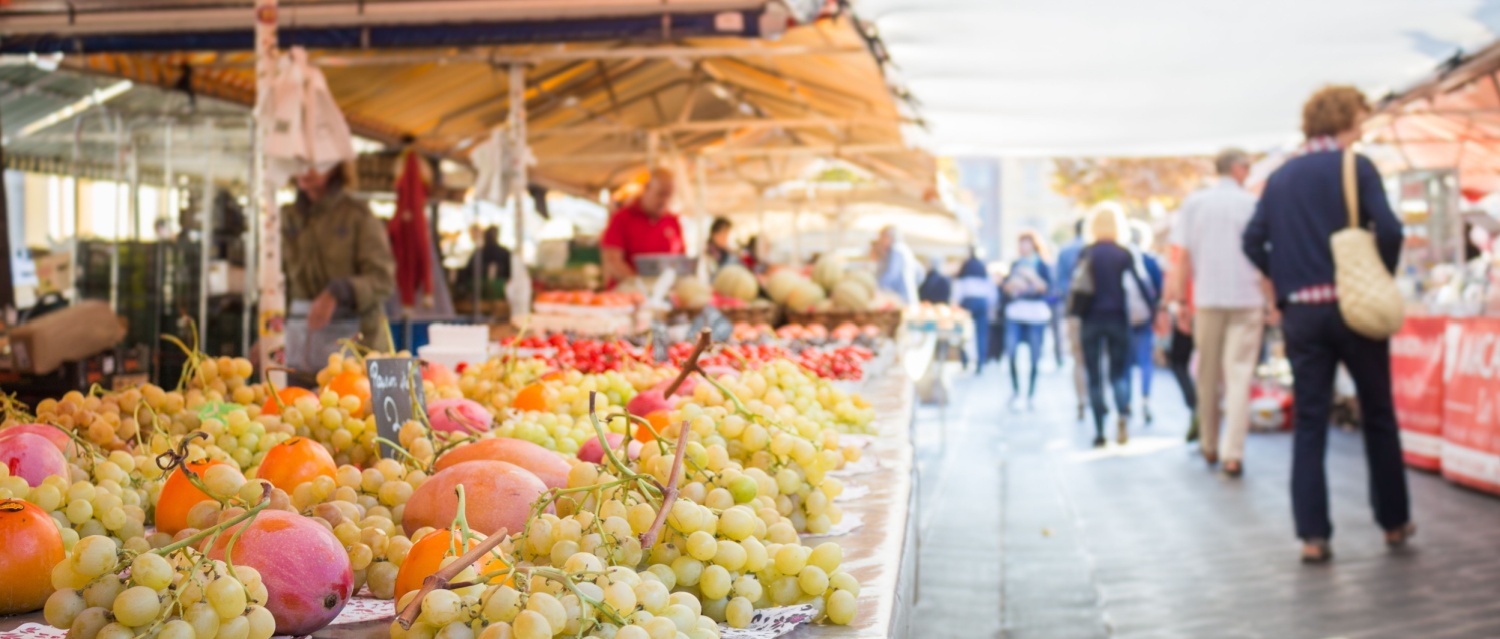Shopping in France offers a distinctly different experience from the UK or North America.
Rather than a single, large weekly shop, many French households prefer a more relaxed approach, visiting local markets and independent shops to source fresh, seasonal ingredients.
While large supermarkets exist, particularly in urban areas, the focus remains on high-quality produce and traditional home cooking.

For the best produce, shop at the markets
Fresh produce and market culture
Local markets are a cornerstone of French life. Nearly every town and village hosts a weekly market, while larger cities boast covered markets operating daily. These are not just places to buy food but social hubs where locals gather, chat, and enjoy the slower pace of life.
Markets sell everything from fresh fruit, vegetables, and herbs to cheeses, meats, and seafood—often sourced from nearby farms or coastal regions. Many also offer household goods, clothing, and artisan crafts.
For an example of France’s best market towns, in the region of Aude, in the south of France, you can find Lézignan-Corbières and Limoux. These two towns hold outdoor markets every Wednesday and Friday, with local producers bringing their finest wine and food for locals to peruse.
For the best value and freshness, shopping early in the morning is recommended. Prices tend to be lower than in supermarkets, and vendors are often happy to provide cooking tips or advice on selecting the best produce.
Covered markets such as Les Halles de Lyon Paul Bocuse or Marché des Capucins in Bordeaux provide an even wider variety of gourmet products and local specialties.

Supermarkets sell good quality staples at low prices
Supermarkets and shopping discounts
Large supermarkets like Carrefour, Intermarché and E.Leclerc are typically found on the outskirts of towns. They offer fresh food counters alongside household goods, gardening supplies, and even pool equipment. Prices vary, but supermarket loyalty cards can provide valuable discounts. Many of these stores also offer home delivery, particularly in more urbanized areas.
While supermarkets are convenient, smaller specialty stores such as boulangeries, fromageries and boucheries remain popular for their superior quality and personal service. Many French shoppers split their grocery runs between these smaller shops and larger supermarkets to strike a balance between quality and affordability.

Local wines are sold ate excellent prices in French caves
Affordable, excellent wine
France is famous for its wine, and buying directly from caves à vin (wine cellars) or cooperatives can lead to fantastic deals. Many shops offer wine en vrac, where you bring your own bottle or container to fill up at a lower cost. Prices for decent local wines start at around €4-€6 per bottle, with good-quality AOC wines available for €7-€12.
Restaurants frequently offer house wine by the carafe (“pichet” or “demi-pichet”), which remains an affordable option. Expect to pay around €10-€15 for a full carafe in a typical bistro or brasserie, significantly less than restaurant prices in the UK.

Embrace the French markets to see another side of France
A more enjoyable shopping experience
While fresh market produce is often superior in quality, supermarkets can sometimes offer lower prices, especially for bulk purchases. Discount supermarkets such as Lidl and Aldi provide lower-cost alternatives, often with similar quality for staple goods.
But shopping in France is not just about convenience, it is also about enjoyment.
Rather than a rushed experience before the weekend, many people take their time, enjoying conversations with shopkeepers, sampling regional specialties and embracing the slower pace of French life. Whether you are navigating a bustling market, picking up a warm baguette from the boulangerie, or selecting a fine bottle of Bordeaux, shopping in France remains a pleasure rather than a chore.





